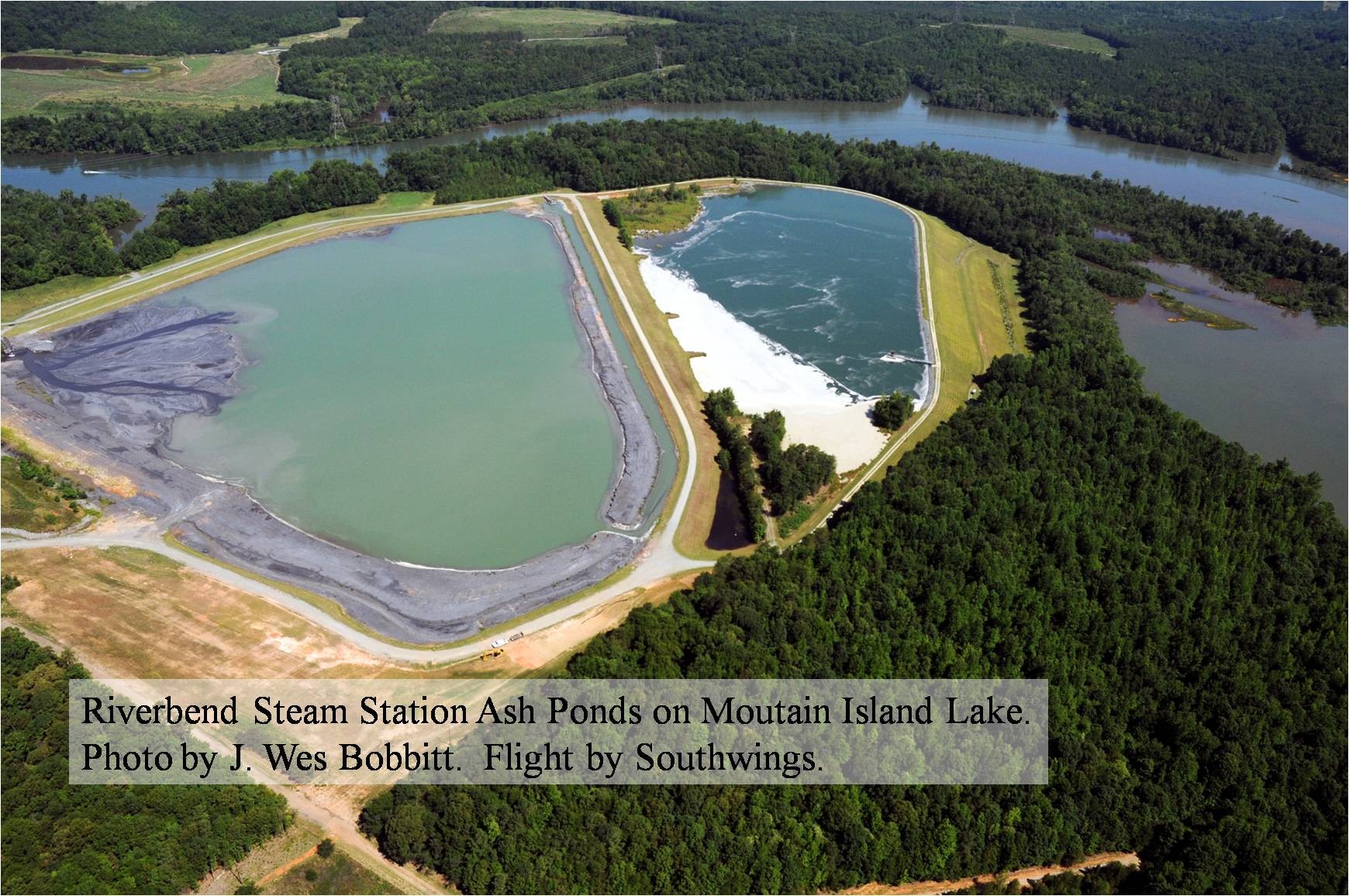
- These two Duke Energy coal ash ponds drain into our drinking water, aka Mountain Island Lake.
Coal ash. By now, you should know that it's draining into our main drinking water reservoir — Mountain Island Lake. If you're not up on this topic, get up to speed with one of our former cover stories (which I wrote): "Is coal ash poisoning Charlotte's drinking water?"
In recent coal ash news:
The U.S. Congress would prefer it if the feds didn't regulate coal ash, even though they said they would.
The EPA began pushing for regulation after a massive coal ash spill at TVA’s Kingston power plant in East Tennessee in December 2008. More than 5 million cubic yards of ash sludge poured through a broken dike into the Emory River and a lakeside neighborhood, covering 300 acres in sludge from 4 to 6 feet deep.Cleanup of the Kingston spill is costing TVA more than $1 billion, and the giant public utility is spending another $1 billion to make improvements to ash storage facilities at coal-fired plants.
Industry representatives and some Republicans have argued that labeling the waste hazardous would saddle the industry with costly regulations, exhaust existing landfill space, raise utility costs for consumers, and stigmatize the use of coal ash in commercial products.
All of that would cost jobs, they say.
If the bill is approved by the full committee, it will move to the House floor. Waxman said the bill has little chance of passing the Senate, which is controlled by Democrats.
TVA customers are paying an average 69 cents a month each until 2024 to cover the cost of the cleanup at Kingston.
Read the entire Times Free Press article, by Elizabeth Bewley, here.
Also, the Environmental Integrity Project has just released a report about coal ash dumping.
A large number of active coal ash disposal sites in 19 states may be violating a federal ban on open dumping, according to a major new analysis released today by the Environmental Integrity Project (EIP).EIP found levels of groundwater contamination at 33 coal ash landfills or impoundments nationwide that are high enough to trigger the “open dumping” provisions of the Resource Conservation and Recovery Act (RCRA). Based on a review of recent (though limited) groundwater monitoring data from state agencies, the 33 active coal ash disposal sites in 19 states — Alabama, Arkansas, Florida, Iowa, Illinois, Indiana, Kentucky, Louisiana, North Carolina, North Dakota, Nebraska, Nevada, New York, Ohio, Oklahoma, Pennsylvania, South Dakota, Tennessee, and Texas — meet the open dumping criteria for one or more of the following coal ash-related pollutants: arsenic, barium, cadmium, chromium, fluoride, lead, mercury, and selenium.
This list includes chemicals that cause cancer, neurological damage, developmental problems, and other diseases. Groundwater that meets the open dumping criteria is toxic and unsafe to drink.
Read the report here. (Yes, Charlotte's Duke Energy is mentioned a couple times.)
In related news, the federal Office of Management and Budget has recently released its own report, and it found that environmental regulations through the U.S. Environmental Protection Agency are fiscally beneficial. (Read the report here.)
That's right: While the yahoos in Congress continue to allow energy producers to pollute our air and water by slowing down and even halting environmental regulations, the ones that squeeze through actually save us money ... not to mention health complications.
To quote Mark Twain: "Suppose you were an idiot. And suppose you were a member of Congress. But I repeat myself."
